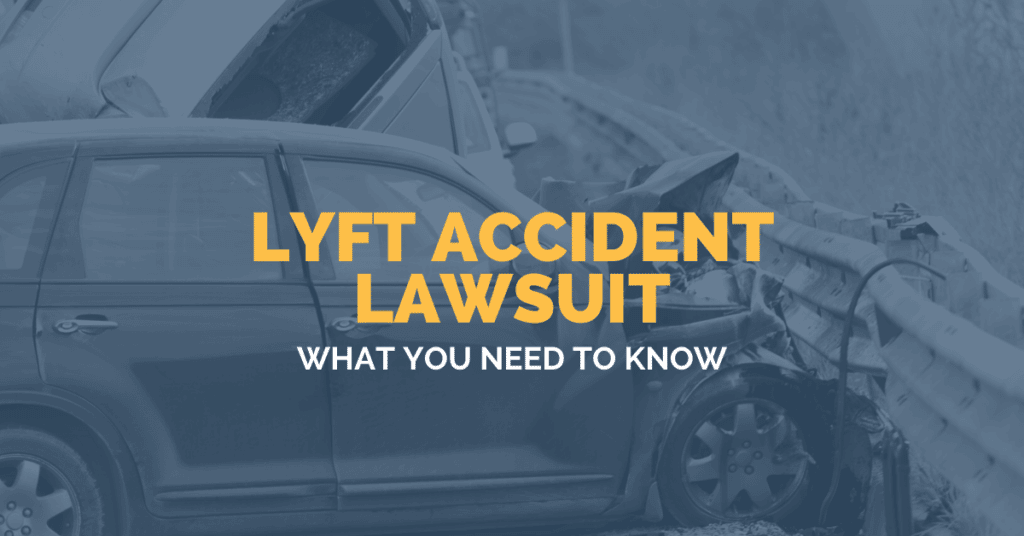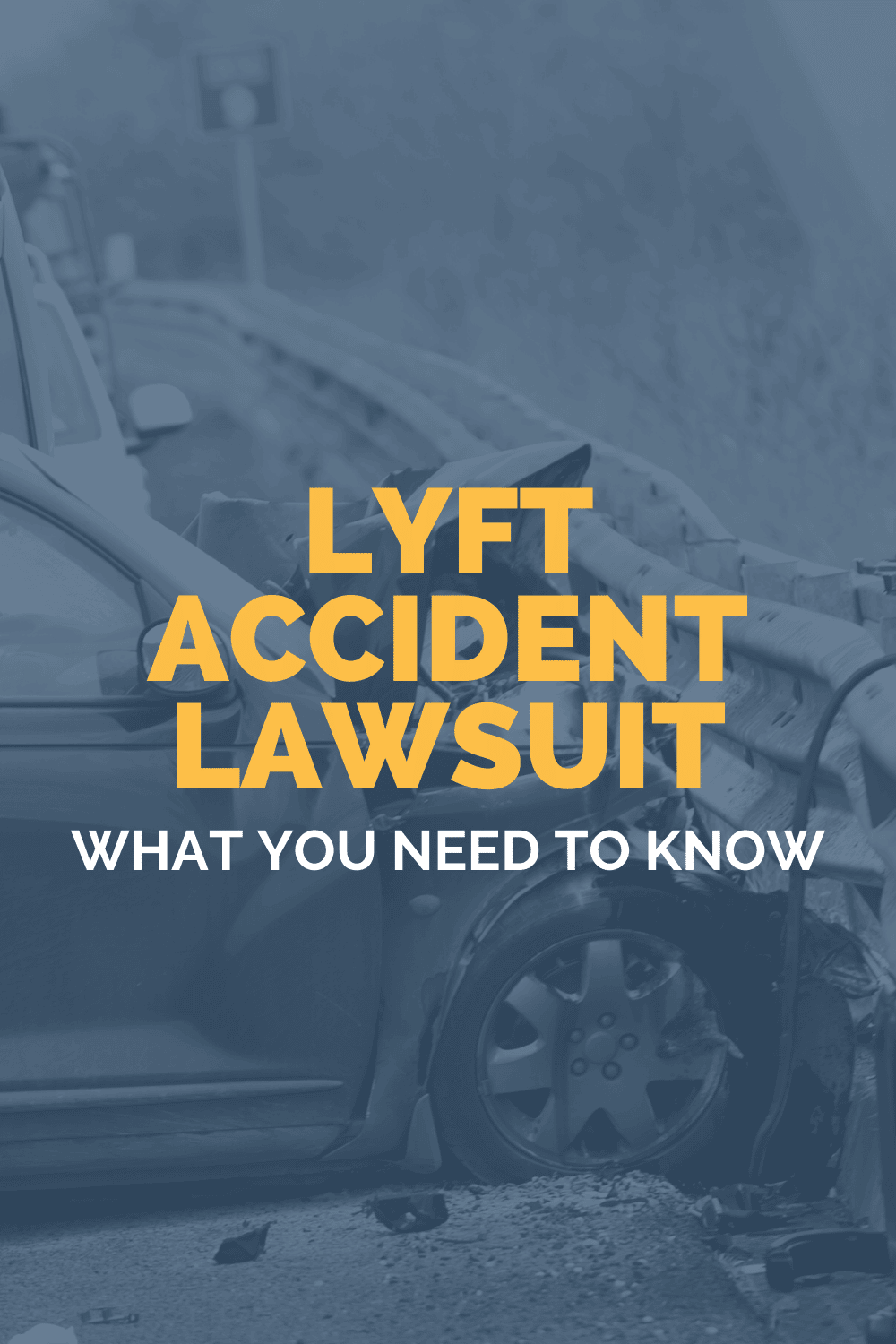Lyft Accident Lawsuit: What You Need To Know

You may be able to file a Lyft accident lawsuit if you were injured by an at-fault Lyft driver. This would allow you to recover unpaid and overdue No-Fault benefits, compensation for your pain and suffering, benefits for excess medical bills and lost wages and other economic damages.
Pain and suffering compensation
To recover pain and suffering damages in a Lyft accident lawsuit against the at-fault Lyft driver, you will need to show you suffered a “serious impairment of body function.” This showing is not required for excess medical expenses and lost wages and other economic damages.
Here is what you need to know:
- A claim for pain and suffering compensation, which is called a third-party car insurance claim or a tort claim, covers the following damages: (1) physical pain and suffering; (2) mental anguish; (3) fright and shock; (4) denial of social pleasure and enjoyments; (5) embarrassment, humiliation or mortification; and (6) shame, mental pain and anxiety.
- Your recovery in a Lyft accident lawsuit on a third-party claim will largely be paid from the at-fault Lyft driver’s “third party car insurance,” which is frequently referred to as liability insurance coverage.
- You have three (3) years after the date of the Lyft crash to file your claim. (MCL 600.5805(2))
Can you sue Lyft for an accident?
In Michigan, if the at-fault Lyft driver who caused your accident which resulted in your injuries is determined to be an “employee” of Lyft, then you could sue Lyft under the “respondeat superior” doctrine which makes an employer liable for its employee’s negligence.
How much liability coverage is there for a Lyft accident lawsuit?
The at-fault Lyft driver who caused the crash that resulted in your injuries is required under Michigan law to have liability insurance that – at a minimum – provides the following coverage in a Lyft accident lawsuit:
- When a Lyft driver is on-call and is available to transport a passenger (but is not actually transporting a passenger), then the minimum liability coverage that the Lyft driver must have in effect is “$50,000.00 per person for death or bodily injury” and “$100,000.00 per incident for death or bodily injury.” (MCL 257.518b(1)(a)(i); 257.2123(2)(a))
- When a Lyft driver is actually transporting an Lyft passenger, then the minimum liability coverage that the Lyft driver must have in effect is a “combined single limit of $1,000,000.00 for all bodily injury or property damage.” (MCL 257.518b(1)(b)(i); 257.2123(3)(a))
No-Fault benefits
In a Lyft accident lawsuit, you may be able to recover No-Fault benefits if the auto insurance company that is supposed to be paying your benefits has denied your claim and refuses to pay.
Here are the key details you need to know about:
- No-Fault PIP benefits pay for a Lyft crash victim’s medical expenses, lost wages, medical mileage (transportation expenses for traveling to and from doctor and medical appointments), household replacement services and attendant care services.
- Before an auto insurance company is going to be required to pay your No-Fault benefits, you must file an application for No-Fault benefits – which is also called a “written notice of injury” – within one (1) year after the car accident. (MCL 500.3145(1) and (4)) This is very important because if you do not file your application within ONE YEAR of the accident, you will lose your right to claim and recover benefits.
- You must file your claim for unpaid, overdue No-Fault insurance benefits within one year from the date that the medical bill, wage loss, medical mileage, replacement service or attendant service was incurred. (MCL 500.3145(2)) If such a claim is not filed within the one-year time period, then the bill will be time-barred and you will lose all rights to payment and/or reimbursement for the overdue benefits.
Filing a Lyft accident lawsuit for No-Fault benefits
You must file your Lyft accident lawsuit for unpaid, overdue No-Fault benefits against the auto insurance company that is responsible for paying your PIP No-Fault benefits, but is refusing to do so.
If you are a Lyft passenger who is involved in a car crash in Michigan, then the auto insurance company that is responsible for paying your No-Fault benefits is one of the following: (1) Your own auto insurance company; (2) the auto insurance company that insurers your spouse or a relative who lives in your home; or (3) the auto insurance company that insurers the Lyft vehicle in which you were riding as a passenger if coverage is not available “under any other policy.” (MCL 3114(1) and (2)(g))
Call the attorneys at Michigan Auto Law for a free consultation
If you were injured in a crash caused by an at-fault Lyft driver and you would like to speak with an experienced attorney about a Lyft accident lawsuit, call toll free anytime 24/7 at (800) 968-1001 for a free consultation with one of our attorneys. Michigan Auto Law attorneys have spoken at seminars both in Michigan and in many other states on the subject of Lyft accidents and ride-share liability, teaching injury lawyers across the nation how to better handle these cases and better protect our clients. You can also get help from an experienced accident attorney by visiting our contact page or you can use the chat feature on our website.






